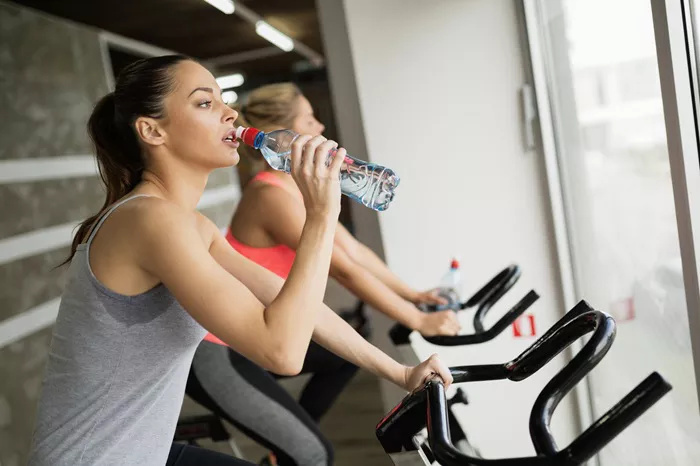In the pursuit of physical fitness and overall well-being, exercise is undoubtedly a cornerstone. Whether you’re an avid athlete, a casual gym-goer, or someone who simply enjoys a brisk walk in the park, staying hydrated during exercise is crucial for optimal performance and health. Water, often overlooked in its importance, plays a pivotal role in maintaining bodily functions and enhancing athletic performance. This article delves into the significance of hydration during exercise, exploring its effects on performance, recovery, and overall health.
Understanding Hydration: The Basics
Before delving into the importance of hydration during exercise, it’s essential to grasp the fundamentals of hydration itself. The human body is predominantly composed of water, with various bodily processes relying on adequate hydration to function optimally. Water facilitates nutrient transportation, temperature regulation, waste removal, and joint lubrication, among other critical functions.
During exercise, the body’s demand for water increases significantly. Physical activity leads to elevated core body temperature and sweating, resulting in fluid loss. Failure to replenish lost fluids can lead to dehydration, a condition that impairs physical and cognitive function, increases the risk of heat-related illnesses, and hampers exercise performance.
Optimizing Performance Through Hydration
Hydration plays a pivotal role in optimizing athletic performance across various activities and intensity levels. Proper hydration ensures adequate blood volume and circulation, which is vital for delivering oxygen and nutrients to working muscles. Moreover, staying hydrated helps maintain electrolyte balance, which is crucial for nerve function and muscle contraction.
Dehydration, even at mild levels, can significantly impair physical performance. Studies have shown that as little as 2% dehydration can lead to decreased endurance, impaired strength and power output, and diminished cognitive function. Athletes and fitness enthusiasts must prioritize hydration to maximize their training potential and achieve their performance goals.
The Impact of Hydration on Endurance
For endurance athletes, such as runners, cyclists, and swimmers, hydration is particularly critical. Prolonged physical activity increases fluid loss through sweat, heightening the risk of dehydration and its detrimental effects on performance. Inadequate hydration during endurance exercise can lead to fatigue, cramping, and decreased exercise tolerance, ultimately compromising performance.
Proper hydration strategies are essential for endurance athletes to maintain optimal fluid balance during prolonged activity. This often involves pre-hydration, consuming fluids before exercise to offset anticipated fluid loss, as well as regular fluid intake during exercise to replace lost fluids and maintain hydration status. Electrolyte-containing beverages may be beneficial, especially during prolonged exercise sessions, to replenish electrolyte stores lost through sweat.
Hydration and Resistance Training
While endurance exercise typically involves sustained aerobic activity, resistance training focuses on building strength and muscle mass through repetitive movements against resistance. Despite the differences in exercise modality, hydration remains crucial for optimizing performance and facilitating recovery during resistance training.
Adequate hydration supports muscle function and energy metabolism during resistance exercise, enabling individuals to lift heavier weights and perform more repetitions. Furthermore, staying hydrated helps minimize the risk of muscle cramps and injuries, allowing for safer and more effective workouts.
The Role of Hydration in Recovery
Hydration is equally important during the post-exercise recovery phase as it is during exercise itself. After a workout, the body continues to lose fluids through sweat and respiration as it works to repair damaged tissues and replenish energy stores. Rehydrating adequately post-exercise is essential for facilitating recovery and promoting optimal adaptation to training stimuli.
Hydration supports the transport of nutrients to muscles, aiding in the repair and rebuilding process. Additionally, replenishing lost fluids helps restore electrolyte balance and optimize cellular function, accelerating recovery and reducing the risk of post-exercise soreness and fatigue.
Hydration Guidelines for Exercise
To maintain proper hydration during exercise, individuals should adhere to hydration guidelines tailored to their specific needs and activity levels. While hydration requirements vary depending on factors such as exercise intensity, duration, and environmental conditions, general recommendations can serve as a starting point for developing an effective hydration strategy.
Pre-Exercise Hydration: Drink approximately 16-20 ounces of fluid 2-3 hours before exercise to ensure adequate hydration status before starting activity.
During Exercise Hydration: Consume fluids regularly during exercise, aiming for 7-10 ounces every 10-20 minutes to replace fluids lost through sweat and prevent dehydration.
Post-Exercise Hydration: Rehydrate following exercise by consuming fluids containing both water and electrolytes to replenish lost fluids and support recovery. Aim to drink 16-24 ounces of fluid for every pound of body weight lost during exercise.
Conclusion
In conclusion, maintaining proper hydration during exercise is essential for optimizing performance, supporting recovery, and safeguarding overall health. Water, often overlooked in its importance, serves as a fundamental component of exercise physiology, facilitating essential bodily functions and enhancing athletic performance. By prioritizing hydration and adhering to effective hydration strategies, individuals can maximize their exercise potential, reduce the risk of dehydration-related complications, and achieve their fitness goals safely and effectively. Remember, whether you’re hitting the gym, hitting the pavement, or engaging in any form of physical activity, staying hydrated is key to unlocking your full potential.
[inline_related_posts title=”You Might Be Interested In” title_align=”left” style=”list” number=”6″ align=”none” ids=”9677,9674,9671″ by=”categories” orderby=”rand” order=”DESC” hide_thumb=”no” thumb_right=”no” views=”no” date=”yes” grid_columns=”2″ post_type=”” tax=””]































